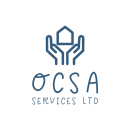What We Offer
Support
Support delivery is person-centred and catered specifically for each young person. Support delivery is also holistic – by utilising different types of support packages, the young person’s risk assessment and support planning, we ensure each young person has a service and support delivery that fits best to their needs, goals and objectives.
All young people are included in the creation of their support plan and support plan documents such as their Pathway Plan, Life Skills Programme, Safety Plan and Weekly Planners – this is to ensure we are able to capture the views of the young person within their documentation, which in turn ensures we are able to offer person-centred support, focused on individual SMART goals.
Types of Support Available
- Day Support
- Sleeping Nights
- 24/7 365 On-Call Support
- 1-1 Life Skills Sessions
- 1-1 Independent Living Work Sessions
Monitoring Progress
When a young person first begins with OCSA, the young person will receive an induction from a member of the management team and, where they introduce the young person to the service, support team, and support available to them. Depending on the type of placement (i.e. group-living placements) the young person will also be introduced to any other young people in that service.
In a planned placement, we offer to meet with a young person, their professionals and family before-hand – we typically like to allocate a support team and create draft placement paperwork during the transition before the placement commences. This allows OCSA to provide support delivery, environment and a team that fits the needs and goals of the young person.
A member of the team and the young person’s allocated Social Worker will complete a first Internal Pathway Plan and Life Skills Program with the young person, which will highlight what level they are currently at in key areas of their independent living skills, such as budgeting, education/employment/training (EET), housing, etc. Both the Plan & Life Skills Program encompass the views of the young person in all sections and aspects (from views on current EET situation to views on how well they are budgeting). A skills questionnaire is also completed alongside the young person which further helps determine what level support should begin at. This also creates an opportunity for the young person to take lead on their placement and plans, we aim to empower young people with this opportunity and to show that you truly can shape the service, your placement and your experience with us to best fit you as an individual.
The allocated support worker and young person will set targets for each area in which they feel the young person needs support, and will review this every fortnight through the bi-weekly progress report, and discuss with the young person what they believe is working well and what is not. This allows the team to change how they approach support delivery, including as much of the young person’s input and opinions as possible.
The team complete weekly planners in advance along with the young person, and allow them to plan their week as they would like and how they feel would maximise their engagement, ensuring to include enjoyable activities, as well as working on life skills. Furthermore, this ensures the allocated support worker and the young person can create structure for support for the coming week. Creating weekly planners this way not only means support delivery is proactive, but also means that support delivery is centralised and uniform.
In addition to this, each member of the young person’s team contributes to the ‘bi-weekly progress report’ which is submitted to the social worker every two weeks (sooner if requested). This report highlights progress made in key areas such as EET, finances, housing, health, relationships, etc.
Weekly Planners include goals and actions from the Internal Pathway Plan, Life Skills Plan and previous Bi-Weekly Progress Reports, ensuring there is a consistent and continuous effort to work towards placement goals. Goals set from any meetings, such as LAC Reviews, are also included. The outcomes of goals and actions are provided in each Bi-Weekly Progress Report, either confirming the progress made and next steps, or confirming that the goal or action has been met.
Support is also evidenced by Independent Living Work Sessions, which are completed whenever the team and young person partake in a formal or informal session focusing on Independent Living Skills or key actions/goals from either plans.
We also create and utilise dynamic Risk Assessments (RA) & Safety Plans.
Life Skills
Life Skills are covered in ‘Independent Living Work’ sessions. Our teams are fully trained in conducting these sessions in both formal and informal settings to maximise the engagement from the young people.
Young people who use our services may require support in a wide range of areas. Our teams can provide support and assistance in areas such as:
Please note: this is by no means an exhaustive list, but it gives an indication of the variety of life skills we support our young people with.

We have Multi Agency Partnerships with:
- Local Authorities (Social Work Teams, Commissioning Teams, Etc?
- Education Providers
- Emergency Services (Police, Ambulance & Fire)
- Mental Health Services (Forward Thinking & CAMHS)
- Safeguarding Teams (MASH)
